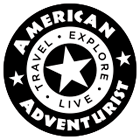Hi all,
I volunteer with the Sheriff's Search & Rescue in San Bernardino County. I can give you a couple of tips that might help if you have to do this again:
Life Flight and other commercial helicopter services are often limited as to where they can set down if there's no organized landing area nearby. Unfortunately, this means they often won't dispatch the helicopter until there is a person on the ground who has scouted out a landing zone, and can act as a HELITAC to guide them in and verify that it is safe. Fire and Sheriff's aviation have more flexibility, and they can drop off their medic to assess the situation and give direction.
What can you do if you're in the middle of nowhere and someone is seriously hurt? First off, focus on ABCs (airway, breathing, circulation). Do what you can to make sure they are breathing, that they have a pulse, and that any severe bleeding is controlled. Do your best to immobilize them in place, or move them in a straight line, such as with a drag sheet if they must be moved for safety (i.e. fire, their car is on top of them, they are in the middle of the freeway).
When you call, have everything you want to say in order before you dial. Be prepared to give contact info, location (nearest roads/cross street, GPS if in the wilderness), and a good description of the problem. I'm not sure why your dispatcher didn't want GPS; SAR will definitely want that, and aviation will too. Helicopter crews usually want LAT/LON coordinates. I would have them already written down and tell the dispatcher. If you get disconnected, they will replay the recording and use those coordinates to get SAR out to you.
If there is a possibility you'll need a helicopter, scout out a clearing, wide road or other place nearby that is free of debris, power lines or other obstructions and mention it to the dispatcher.
When you're on the phone with 911, the more calm and in control you sound, the easier will be to articulate how bad the situation is and what resources you're going to need. I know it sounds counter-intuituve, but you'll be taken much more seriously if you aren't freaking out.
If you took any vital signs (level of consciousness, pulse, respirations) make sure to give them. Tell the dispatcher the patient is deteriorating if they are. A trend is more useful than more detailed information. Their job is to figure out if the patient is critical (may die or suffer permanent injury) and how quickly they need to get to treatment. Faster often means more risk, so they need to get this right and weigh the factors.
Assign someone to keep in contact with 911, and assign folks to watch the road and direct whoever shows up. Depending on the situation and how long they think transport will take, you might want to ask about starting the evac now and meeting the EMS crew halfway. This will save time, as SAR folks are all volunteer and will take a while to organize for a wilderness mission.
Remember that helicopters often get called away, cancelled due to weather and mechanical issues, and rarely fly at night. Law enforcement (rangers, Sheriff, CHP, etc) often have 4x4 trucks and will make a best-effort to get to you if near some sort of road. SAR goes out in any weather, and will hike, snowshoe, etc to get to you if needed. All of these resources will get to you MUCH faster if they know exactly where to go. Most of our rescues are resolved in a matter of hours with a small team, while a SEARCH can take hundreds of man-days and may not result in a live find.
Hope this helps!
Arclight

